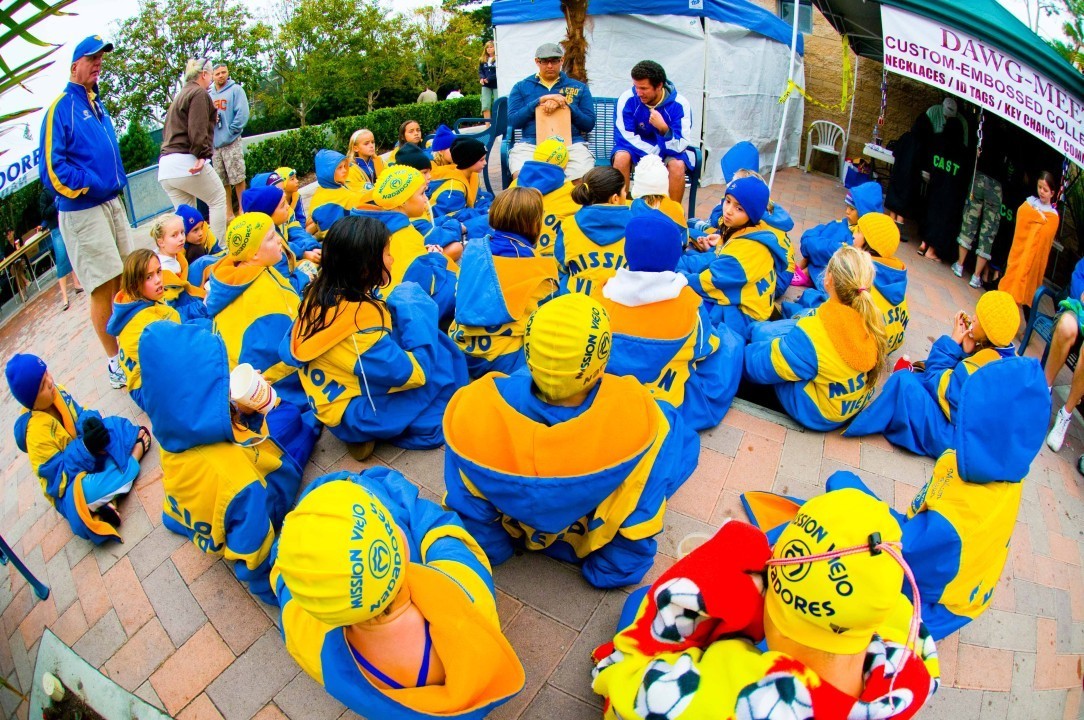Jennifer Schababerle graduated from Texas A&M in 1993. She graduated from the University of Texas at Dallas in 1997 with a Master’s degree in Communication Disorders. She holds a Certificate Clinical Competence and is licensed by the State of Texas. She has worked with both children and adults in a variety of settings. She has experience working in clinics, rehabilitation centers, nursing homes, private practices, private schools, and public schools.
She is a member of Texas Speech-Language Hearing Association (TSHA) and American Speech-Language Hearing Association (ASHA).
Today is the 8th Annual World Autism Awareness Day and the kick-off for Autism awareness month. All across the globe, people are participating in activities to highlight the 8th Annual World Autism and those who affected by this disorder. We here at SwimSwam want to take this time to talk about swimming and children with autism, because autistic children can and do benefit from swimming lessons, water safety, and swim teams.
Learn more about the Autism Speaks Swimming and Water Safety Scholarship program here.
For the reader who may need a definition of what autism is, the National Institute of Health (NIH) states: “Autism spectrum disorder (ASD) refers to a group of complex neurodevelopment disorders characterized by repetitive and characteristic patterns of behavior and difficulties with social communication and interaction. The symptoms are present from early childhood and affect daily functioning.”
The NIH also goes on to say that, “ASD occurs in every racial and ethnic group, and across all socioeconomic levels. However, boys are significantly more likely to develop ASD than girls. The latest analysis from the Centers for Disease Control and Prevention estimates that 1 in 68 children has ASD.”
Swimming lessons for children with autism can be used to reinforce goals that they are working on in their various therapy sessions. For example, if a child is enrolled in speech therapy, and their goals included learning to use the muscles of their face appropriately for production of speech sounds, then as they practice the ever popular blowing bubbles activity, they are working on the rounding of the lips for the /p/ and /b/ sounds. The motor boat noises activity help them to approximate their lips to form the /m/sound.
Among the specific benefits of time in the pool is that in-water activities can expose individuals on the autism spectrum to proprioceptive and vestibular input because of the hydrostatic pressure and buoyancy of the water. Activities like jumping around, splashing and floating provide individuals with autism with such inputs of sensation. Also, an even pressure is exerted throughout the child’s body creating a safe and supported environment.
Water safety is important for all children to have. The website, Autism Speaks, reports that, “In 2009, 2010, and 2011, accidental drowning accounted for 91% of total U.S. deaths reported in children with an ASD ages 14 and younger subsequent to wandering/elopement.” They also state that of parents reporting, 32% have had a ‘close call’ with drowning. Water safety for all children including those with ASD is, enough said.
Swim team is a rewarding experience that all children should have, but for children with ASD, it can be even more rewarding experience. As members of the local swim team, they can work on social skills. They learn turn-taking skills as a member of a relay team, and can practice how to (and not to) cheer on a teammate during a race. Another benefit for children with ASD is the ability to participate in a team sport, where they are able to move up based on their own performance in a race, and not someone else’s.
So, start lighting up your pool blue tonight to celebrate World Autism Awareness Day, and then spend the month looking for opportunities at your local clubs to promote swimming lessons, water safety, and swim teams for children with ASD.

I would like some more info.
Our son is 12 and autistic. He was welcomed with open arms by a local usa swim club (IFST)at the age of 5. He thrives in the water, loves the coaching and his daily time in the water with team mates. I can’t imagine where our journey would be without team swimming, usa swimming, our local LSC and the amazing coaching he has received. We have moved and he is learning a new pool, team and coaches. He is doing well and on fire for swimming.